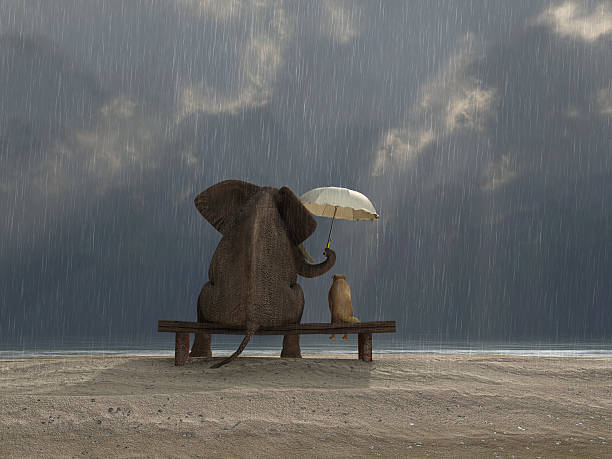My friend’s octogenarian mother slipped in the kitchen recently. Thankfully, it was a soft fall and she was not hurt. But as she fell, she screamed and so did my friend. The husband came running to help but the grandson watched the whole thing from his seat at the dining table. When berated by both parents as to why he did not come to help, he was equally indignant; his response being that he could see she was not hurt and that she was being helped anyway.
Over the last decade, as we, the children and parents, have become older, the gap between our reactions to the same situation has become wider. When a colleague heard me coughing while I was on a phone call, she brought me a glass of water, unsolicited. You ask the young adult in the house for a glass of water, they roll their eyes and demand why you don’t carry a water bottle. The behaviour of my octogenarian father insisting to carry bags that I am perfectly capable of carrying contrasts too much with that of children who have complete faith in my ability to carry any burden! Generation gap, pragmatism, or lack of consideration?
Holding the door open or giving up the seat to someone? It does not have to involve a discussion on class, race, age, or gender. The people who are paid for the service they provide – household workers, chauffeurs, administrative assistants, to name a few – should still be acknowledged, not ignored. It is their job but when someone does a great job, often it is the appreciation that makes it worth their while.
This is not to be a discourse on parenting, expectations, or generation gap. The happiness of a group, be it a team, family, community, or society, depends on the collective efforts of every individual member. It is important to be mindful of others’ needs while tending to our own. We can be independent while being interdependent. To live the life we have built for ourselves, we are dependent on so many people who we don’t even know. So what is wrong with seeking that from those who are close to us?
Complete individual freedom means doing what we want, all the time. Is that possible if you live in a community, a family, or any other social unit? To coexist peacefully and respectfully, we need to adhere to some norms of behavior. Manners are important; not in the way of how to use the right fork or curtsy to the queen but in how we extend care to others. I loved Fanshawe’s definition, “manners flow from the principles of respect for and ease with each other. They are an agreement about ways of behaving to one another that simply makes life more enjoyable …”.
The spirit of independence is not necessarily quashed by timeless qualities like consideration, compassion, and helpfulness. You don’t need to walk in someone’s shoes to understand how to behave with them. Being mindful of the consequences of our actions is enough. However, if you do, please seek permission from the owner of the shoes beforehand. After all, it is good manners!


Very enjoyable and thought provoking. You are a natural. Keep writing
True. The small niceties have come to be known as ‘old world charm.’ As a family elder used to say “एक जेनरेशन में हाल बदलता है; दो जेनरेशन में चाल बदलता है और तीन जेनरेशन में फ़ैमिली ख़ानदानी कहलाता है.” We should always be conscious of the sensibilities of people with whom we interact.
As I have always maintained, independence in its complete form is a myth. From the time of birth, till the time of death, we are dependent on one or the other entity. From the mother who provides life-sustaining milk to the newborn, to the farmer who grows the food we consume, to the water man who makes sure we get water in the tap, to the sewage and garbage worker who keeps our surroundings clean, to the maid and cook who help the home run, to the father who is always there, to the mother who is ever-forgiving, to …. the list is endless. Even if a person is alone in a forest, she is dependent on the trees that give fruit and shelter, and the rain that quenches her thirst. So, whence the illusion of independence? The craze to “feel and declare” independence comes, I believe, from a notion that “I am less of a person if I need others”. Actually, if I acknowledge my needs and dependence, I am not reduced in any way. After all, others also depend on me. Further, its nothing but a heightened sense of ego that prevents me from acknowledging that I need others. For that might mean, horror or horrors, that I have to eat the humble pie!!!
Well said Veda.
Beautifully written. So many times you think the same when small curtsies are forgotten
Even the millennials want empathy, support and understanding from us and their friends, But it does not occur naturally to them to give the same to their immediate circle of family and friends. However their primary empathy is on a larger canvas — the have nots, the environment, the special needs kids, gender and racial discrimination amongst others. On these fronts, they feel, they act and are so committed that it humbles and puzzles us.
Tanu as usual,this is so well written.
More than that you have chosen to write on a subject which needs to be emphasized,specially in today’s me first days.
little acts of consideration are the need of the hour.
In a family they lead to strong bonding and togetherness,in society little acts of kindness and thoughtfulness lead to a better understanding and social environment.
Keep writing.
Love reading what you write.
True.. Thought provoking
Wonderful read…
There were comments from people I dont know. Thank you for reading and commenting!